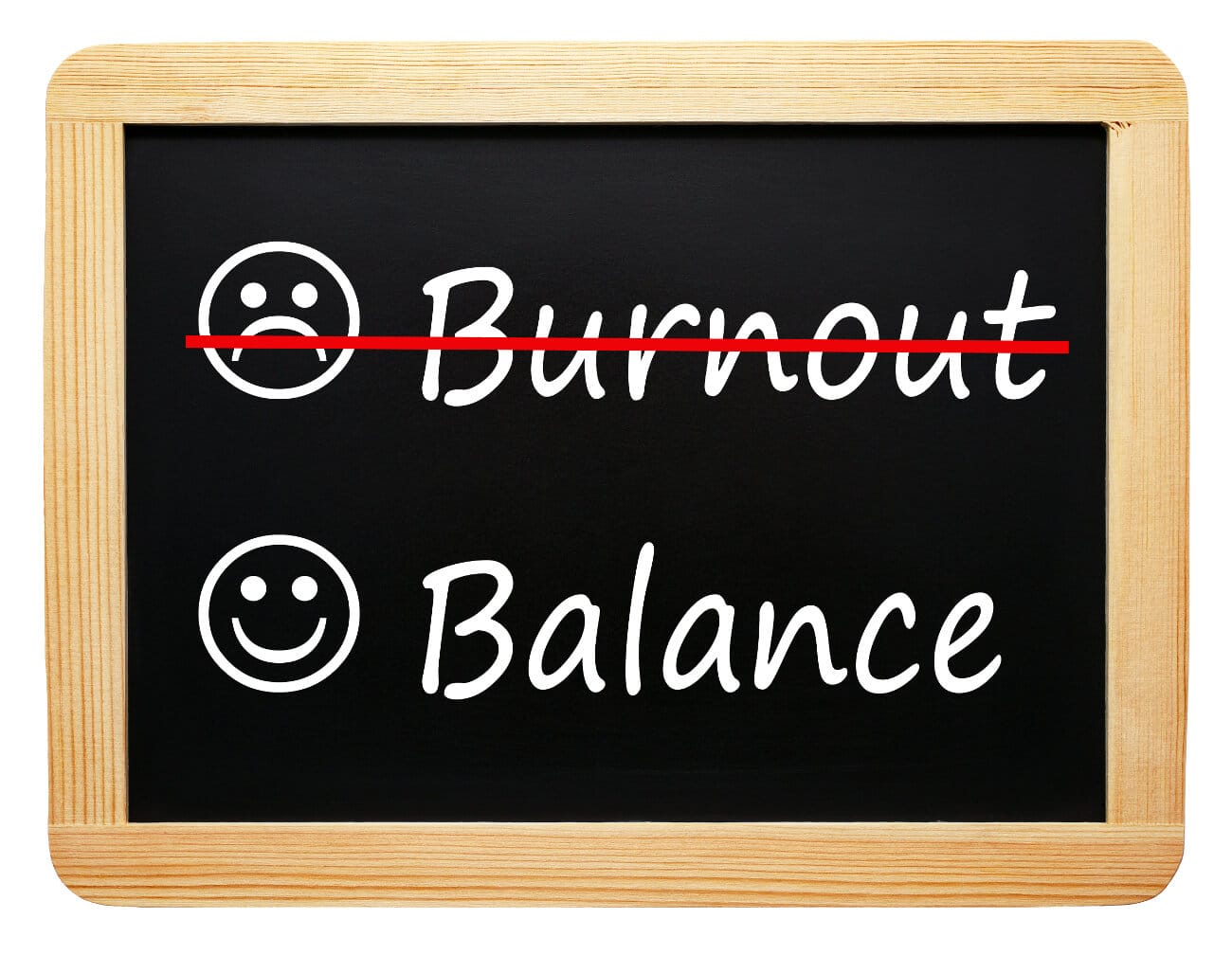Everyone knows about the dangers of stress. This is especially true for executives who frequently work longer hours than anyone else – and under greater pressure.
If stress like this persists, it can lead to “executive burnout“.
This is such a serious condition being experienced by an increasing number around the world it’s now officially recognised by WHO (World Health Organization).
This agency responsible for international public health defines it as a syndrome “resulting from chronic workplace stress that has not been successfully managed”.
WHO states it is characterised by these three dimensions:
- Feelings of energy depletion or exhaustion.
- Increased mental distance from one’s job, or feelings of negativism or cynicism related to one’s job.
- Reduced professional efficacy.
A key difference between stress and burnout is that stress usually only lasts a short period. Executive burnout is the result of constant stress, and it can last for a prolonged period.
Suffering from burnout creates a profound sense of disillusionment. All that hard work feels to have been pointless.
Motivation and enthusiasm seem to disappear. Even small chores that should feel like carrying a pebble seem to weigh as heavy as a boulder.
Daily living feels like the life of king Sisyphus who in the Greek myth was punished by the god Zeus. His punishment was to roll a massive boulder up a hill every day… only for it to roll down every time it neared the top. He was forced to repeat this for eternity.
In the early stages, executive burnout causes problems with work projects as well as with professional and personal relationships. Left untreated it can destroy careers and relationships – and life can lose its meaning.
Anyone can fall to burnout, but now it’s causing an increasing number of high-level executives, entrepreneurs and business owners to seek treatment. Along with many other conditions here at White River, we have great experience in treating executive burnout.
What are the signs of executive burnout?

Burnout has been around for many years despite it being an increasing modern-day issue.
The main attributes of burnout are:
- Cynicism – lost enthusiasm for day-to-day responsibilities.
- Exhaustion – loss of energy.
- Inefficacy – low self-confidence and belief.
But people suffering from executive burnout can experience signs, symptoms and consequences in many different ways. This can depend on such as personal characteristics as well as how long it has been going on without being treated.
Emotional symptoms can include:
- Mental exhaustion.
- Loss of enjoyment.
- Feeling unappreciated.
- Detachment and feelings of remoteness.
- A sense of ineffectiveness and not being able to accomplish anything.
- Impatience and irritability – especially with colleagues, clients and/or customers.
- Concentration difficulties.
- Feeling overwhelmed with everything.
- An almost continual feeling of dissatisfaction.
- Excessive and frequently unjustified self-criticism.
- Constantly feeling negative and pessimistic.
- Feelings of apathy and hopelessness.
- Foggy thinking.
- Disillusionment and loss of meaning.
- Feeling alone.
- Overall resentment.
- Loss of any emotion.
- Anxiety.
- Depression.
Physical signs and effects can include:
- Chronic fatigue.
- Headaches.
- General aches all over the body.
- Chest pains.
- Insomnia.
- Appetite loss and possible weight loss.
- Breathlessness.
- Dizziness.
- Feeling faint.
- Palpitations.
- Binge eating and possible weight gain.
- Family and relationship problems.
- Loss of motivation and interest in work.
- Addictions can develop in a bid to cope, such as increased smoking, drinking more, using (or using more) drugs like cocaine.
- Low energy meaning less productivity.
- Frequent illnesses and infections due to lowered immune system.
- Less or loss of libido.
- Inability to make deadlines or complete obligations.
- Withdrawal from social situations.
- Work absenteeism and/or constantly being late in the mornings, for meetings and appointments.
- Not returning calls, emails, messages or replying to letters.
We’re here to help
Let’s talk
Call now for a totally confidential, no-obligation conversation with one of our professionals.
We have developed a simple yes or no self-assessment as a starting point. It will help to see if you or someone you know might be suffering from executive burnout and in need of treatment.
It includes questions such as:
I take my frustrations out on the people close to me.
YES/NO
I’m not a happy and likeable person to be around most of the time.
YES/NO
I wish I could get away from it all and disappear for a while.
YES/NO
How to treat burnout

Because everyone is different with unique backgrounds and specific problems, we always offer an individual treatment plan. This will be tailored to a guest’s therapeutic requirements and any needs our experienced therapists establish will help in the best manner.
To achieve enduring benefits from your stay with us this can include effective proven treatments such as cognitive behaviour therapy, dialectical behaviour therapy, mindfulness therapy, solution-focused therapy and trauma-specific therapy. There is also music and art therapy, adult-child therapy, group therapy, family therapy and an introduction to the Twelve Steps recovery Program.
All of these have helped many people suffering from burnout.
We will also look closely to see if executive burnout is masking something else such as depression. Signs of this could be that even at the weekend or on a holiday the low feelings that seemed to be associated with work do not go away.
Our Wellness & Executive Burnout Program is ideal to help, including the use of a fully equipped private gym. Then in our tranquil spa room, guests can relax with massages, facials, manicures, pedicures and more.
Outside of White River Manor we go on some exceptional excursions to show you some of South Africa’s beauty. We are fortunate to be close to the Kruger National Park, one of South Africa’s largest and most renowned game reserves, where you can see such as lions, leopards, and elephants.
How long does it take to recover from burnout?
Recovery depends on many factors including each individual’s character and for how long they have been suffering with burnout. What is certain is that being here is the best place for the most rapid recovery.
Not only is South Africa affordable compared to most other countries, it offers great year-round weather and many other benefits as the ideal place for treatment.
Because of where we are and the climate there’s plenty of chance to be outside. The great outdoors undoubtedly aids recovery.
Then there’s White River Manor itself. It’s a stunning place with completely relaxing accommodation to ensure you rest well.
How to stop burnout
This is always our aim – not only to treat anyone but to ensure the treatment is effective into the future.
One simple but often overlooked aspect of burnout is that healthy eating suffers.
So we make sure all our guests get into the habit of eating fresh nutritional food. Not only is this delightful for the tastebuds it’s been scientifically proven that certain foods lift levels of mood, energy and concentration.
Additionally, eating a diet rich in fresh fruits, vegetables, nuts, and whole grains can reduce the risk of many mental health conditions. Without doubt it is beneficial in avoiding a recurrence of burnout.
We will help guests to realise the importance of such as getting regular sleep again; how to stop over-thinking; to make sure to spend time with friends and family; to cut down or quit drinking and stop taking any recreational drugs.
Our expert team will also show our guests how to be aware of triggers and how to deal with them should something arise.
As well we show guests how to set clear boundaries between work and home; learn how to say no to taking on more than can be efficiently handled; to take regular breaks during working days and to have holidays, and to take up hobbies.
Burnout is a serious mental health condition that rarely goes away on its own. Get in touch with us today to see how we can help.







